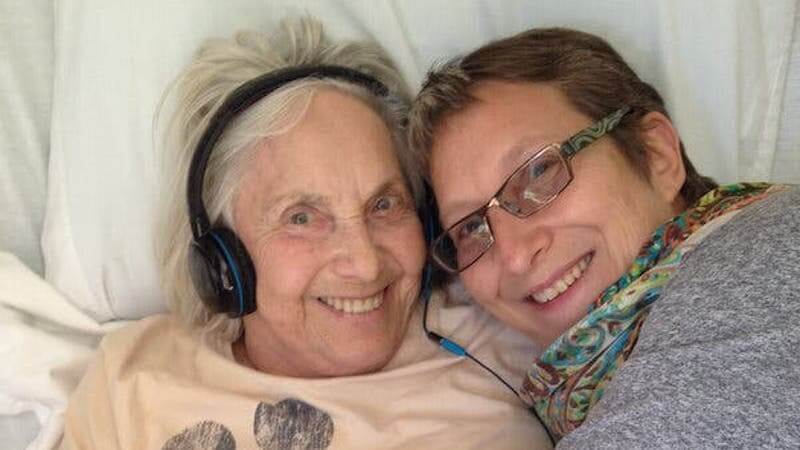
On this 23rd day of the month, the number 23 has an interesting role in the life and writing career of Laura Davis, the author of six non-fiction books she wrote to help people heal, change their lives, and be inspired to be better and do better each day.
On a day when she was 23, Davis had her first poem published about her mother, who was married to her father for 23 years. The poem gave us a picture of an emotional time, focused on her relationship with her mother.
Her upcoming workshop, Unraveling the Mother Knot: Writing as a Pathway to Explore and Heal That Primal Bond, is at Esalen April 18-20, 2022.
This guest post was penned by Davis, who sent us an email with the subject line: “I got up early and wrote this.” We are honored that Laura Davis shares more about what happened with her mother in the decades to come. May you be inspired to write about your mother — or anything else — to heal and find the deep corners of your heart.
By Laura Davis
More than forty years ago, when I was 23 years old, I had a poem published in an anthology by Tillie Olsen: Mother to Daughter, Daughter to Mother. My poem described the fear and hatred I felt as a teenager sitting across the dinner table from my mother after she’d had two Scotch rocks and a few glasses of wine — her voice slurring as the fork scraped across her teeth. At the time, I didn’t have a hint of empathy for her: my father, her husband of twenty-three years, had just walked out on her. I didn’t care.
That poem was the beginning of decades exploring my relationship with my mother on the page. At 27, I filled hundreds of journal pages describing her betrayal after I told her that her father had sexually abused me as a child — she vehemently denied it, accusing me of making up lies out of spite.
A few years later, in The Courage to Heal, my 1988 guidebook to healing from child sexual abuse (co-authored with Ellen Bass), hints of my bitter estrangement from my mother were hidden within its 600+ pages.
A dozen years later, my fledging reconciliation with my mother led me to research and write I Thought We’d Never Speak Again: The Road from Estrangement to Reconciliation, a book largely built on interviews with other people: Vietnam veterans who went back to Vietnam, people who’d participated in restorative justice, family members struggling to make peace with one other. Once more, I wove a small personal thread throughout the book that revealed bits and pieces of my own mother-daughter reconciliation story.
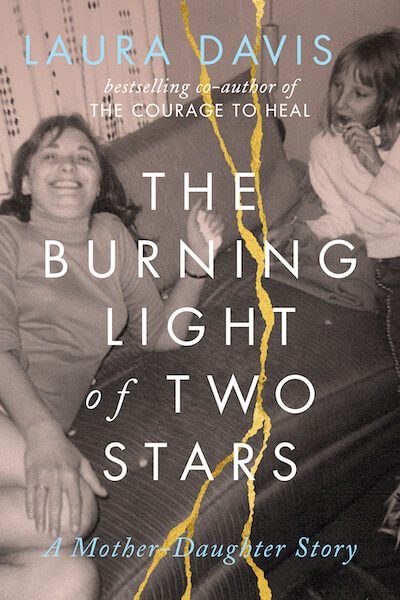
Two decades passed in which I didn’t publish a word about my mother. But last fall, I published a memoir about our relationship and my experience as her caregiver at the end of her life: The Burning Light of Two Stars. Our dramatic, complex, primal, challenging and ultimately transformative mother-daughter relationship was no longer tucked into the hidden corners of a larger self-help book. Now it was front and center. I was finally telling the real truth, no holds barred, in honest, visceral, and at times, entertaining detail. But it took me forty years to get there and ten years to write it.
I often tell my writing students to trust the power of their obsessions: the things they can’t stop thinking and dreaming about. Our obsessions have energy — they’re tied to our deepest feelings, wants, and desires. Our obsessions often compel us to search for the answer to a core life question. In my case it was, “Can I love and care for a mother who betrayed me in the past?”
People often ask me, “Why have you continued to write about your mother?” Because of the intense, intractable bond between us. Because our relationship continued to evolve. Over the decades, she changed, and I changed. As we moved through different life cycles, the power dynamic kept shifting between us.
As the author Deborah Fruchey so aptly put it, “Every time I look in the rearview mirror, the past has changed.”
In a lifetime writing about my mother, she went from being a villain and my antagonist, to being a flawed, loving, generous, dramatic, memorable human being. And my portrayal of myself grew more honest over the years as well: I went from being the wronged victim and the hero of the story to an imperfect, driven, loving, human being — both of us struggling to love each other.
Writing is a powerful tool for exploring the deep recesses of our heart and psyche and for finding the answers to some of life’s deepest questions. For the past twenty years, it’s been my calling — and my deep pleasure — to help others heal using writing as a pathway to discovery and insight. I love helping people dig underneath their habitual stories and to witness their awe at what they find there. It is always worth the rigors of the journey.
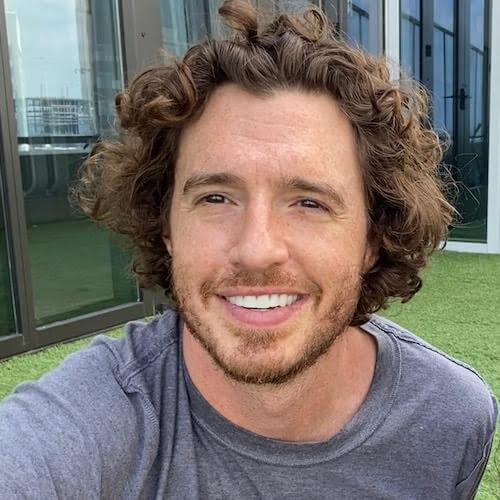
“Remembering to be as self compassionate as I can and praying to the divine that we're all a part of.”
–Aaron
“Prayer, reading, meditation, walking.”
–Karen
“Erratically — which is an ongoing stream of practice to find peace.”
–Charles
“Try on a daily basis to be kind to myself and to realize that making mistakes is a part of the human condition. Learning from our mistakes is a journey. But it starts with compassion and caring. First for oneself.”
–Steve
“Physically: aerobic exercise, volleyball, ice hockey, cycling, sailing. Emotionally: unfortunately I have to work to ‘not care’ about people or situations which may end painfully. Along the lines of ‘attachment is the source of suffering’, so best to avoid it or limit its scope. Sad though because it could also be the source of great joy. Is it worth the risk?“
–Rainer
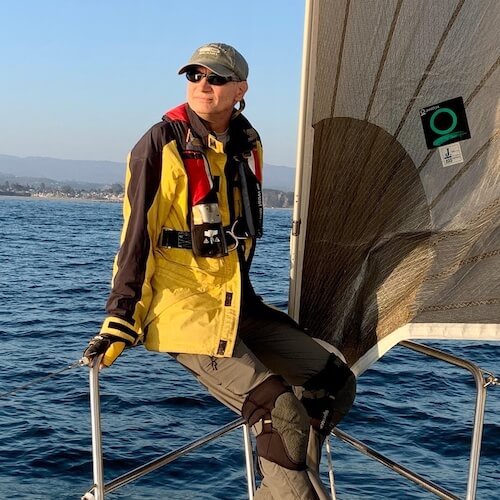

“It's time for my heart to be nurtured on one level yet contained on another. To go easy on me and to allow my feelings to be validated, not judged harshly. On the other hand, to let the heart rule with equanimity and not lead the mind and body around like a master.”
–Suzanne
“I spend time thinking of everything I am grateful for, and I try to develop my ability to express compassion for myself and others without reservation. I take time to do the things I need to do to keep myself healthy and happy. This includes taking experiential workshops, fostering relationships, and participating within groups which have a similar interest to become a more compassionate and fulfilled being.“
–Peter
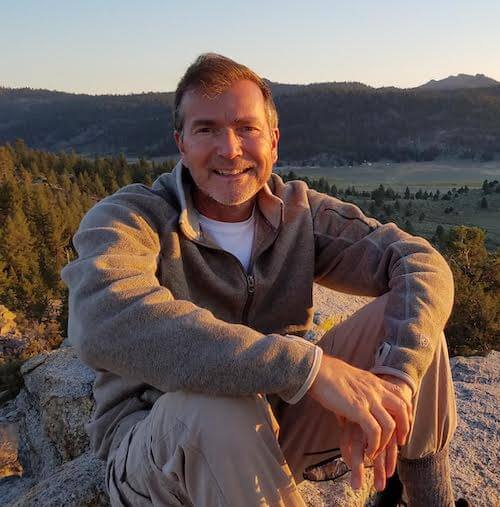
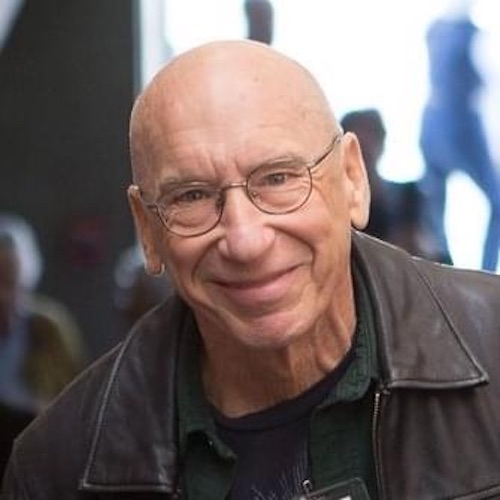
“Self-forgiveness for my own judgments. And oh yeah, coming to Esalen.”
–David B.
“Hmm, this is a tough one! I guess I take care of my heart through fostering relationships with people I feel connected to. Spending quality time with them (whether we're on the phone, through messages/letters, on Zoom, or in-person). Being there for them, listening to them, sharing what's going on with me, my struggles and my successes... like we do in the Esalen weekly Friends of Esalen Zoom sessions!”
–Lori

“I remind myself in many ways of the fact that " Love is all there is!" LOVE is the prize and this one precious life is the stage we get to learn our lessons. I get out into nature, hike, camp, river kayak, fly fish, garden, I create, I dance (not enough!), and I remain grateful for each day, each breath, each moment. Being in the moment, awake, and remembering the gift of life and my feeling of gratitude for all of creation.”
–Steven
“My physical heart by limiting stress and eating a heart-healthy diet. My emotional heart by staying in love with the world and by knowing that all disappointment and loss will pass.“
–David Z.
Today, September 29, is World Heart Day. Strike up a conversation with your own heart and as you feel comfortable, encourage others to do the same. As part of our own transformations and self-care, we sometimes ask for others to illuminate and enliven our hearts or speak our love language.
What if we could do this for ourselves too, even if just for today… or to start a heart practice, forever?
Register now for your journey, guided by Laura Davis.
Unraveling the Mother Knot: Writing as a Pathway to Explore and Heal That Primal Bond, April 18-20, 2022.

On this 23rd day of the month, the number 23 has an interesting role in the life and writing career of Laura Davis, the author of six non-fiction books she wrote to help people heal, change their lives, and be inspired to be better and do better each day.
On a day when she was 23, Davis had her first poem published about her mother, who was married to her father for 23 years. The poem gave us a picture of an emotional time, focused on her relationship with her mother.
Her upcoming workshop, Unraveling the Mother Knot: Writing as a Pathway to Explore and Heal That Primal Bond, is at Esalen April 18-20, 2022.
This guest post was penned by Davis, who sent us an email with the subject line: “I got up early and wrote this.” We are honored that Laura Davis shares more about what happened with her mother in the decades to come. May you be inspired to write about your mother — or anything else — to heal and find the deep corners of your heart.
By Laura Davis
More than forty years ago, when I was 23 years old, I had a poem published in an anthology by Tillie Olsen: Mother to Daughter, Daughter to Mother. My poem described the fear and hatred I felt as a teenager sitting across the dinner table from my mother after she’d had two Scotch rocks and a few glasses of wine — her voice slurring as the fork scraped across her teeth. At the time, I didn’t have a hint of empathy for her: my father, her husband of twenty-three years, had just walked out on her. I didn’t care.
That poem was the beginning of decades exploring my relationship with my mother on the page. At 27, I filled hundreds of journal pages describing her betrayal after I told her that her father had sexually abused me as a child — she vehemently denied it, accusing me of making up lies out of spite.
A few years later, in The Courage to Heal, my 1988 guidebook to healing from child sexual abuse (co-authored with Ellen Bass), hints of my bitter estrangement from my mother were hidden within its 600+ pages.
A dozen years later, my fledging reconciliation with my mother led me to research and write I Thought We’d Never Speak Again: The Road from Estrangement to Reconciliation, a book largely built on interviews with other people: Vietnam veterans who went back to Vietnam, people who’d participated in restorative justice, family members struggling to make peace with one other. Once more, I wove a small personal thread throughout the book that revealed bits and pieces of my own mother-daughter reconciliation story.

Two decades passed in which I didn’t publish a word about my mother. But last fall, I published a memoir about our relationship and my experience as her caregiver at the end of her life: The Burning Light of Two Stars. Our dramatic, complex, primal, challenging and ultimately transformative mother-daughter relationship was no longer tucked into the hidden corners of a larger self-help book. Now it was front and center. I was finally telling the real truth, no holds barred, in honest, visceral, and at times, entertaining detail. But it took me forty years to get there and ten years to write it.
I often tell my writing students to trust the power of their obsessions: the things they can’t stop thinking and dreaming about. Our obsessions have energy — they’re tied to our deepest feelings, wants, and desires. Our obsessions often compel us to search for the answer to a core life question. In my case it was, “Can I love and care for a mother who betrayed me in the past?”
People often ask me, “Why have you continued to write about your mother?” Because of the intense, intractable bond between us. Because our relationship continued to evolve. Over the decades, she changed, and I changed. As we moved through different life cycles, the power dynamic kept shifting between us.
As the author Deborah Fruchey so aptly put it, “Every time I look in the rearview mirror, the past has changed.”
In a lifetime writing about my mother, she went from being a villain and my antagonist, to being a flawed, loving, generous, dramatic, memorable human being. And my portrayal of myself grew more honest over the years as well: I went from being the wronged victim and the hero of the story to an imperfect, driven, loving, human being — both of us struggling to love each other.
Writing is a powerful tool for exploring the deep recesses of our heart and psyche and for finding the answers to some of life’s deepest questions. For the past twenty years, it’s been my calling — and my deep pleasure — to help others heal using writing as a pathway to discovery and insight. I love helping people dig underneath their habitual stories and to witness their awe at what they find there. It is always worth the rigors of the journey.

“Remembering to be as self compassionate as I can and praying to the divine that we're all a part of.”
–Aaron
“Prayer, reading, meditation, walking.”
–Karen
“Erratically — which is an ongoing stream of practice to find peace.”
–Charles
“Try on a daily basis to be kind to myself and to realize that making mistakes is a part of the human condition. Learning from our mistakes is a journey. But it starts with compassion and caring. First for oneself.”
–Steve
“Physically: aerobic exercise, volleyball, ice hockey, cycling, sailing. Emotionally: unfortunately I have to work to ‘not care’ about people or situations which may end painfully. Along the lines of ‘attachment is the source of suffering’, so best to avoid it or limit its scope. Sad though because it could also be the source of great joy. Is it worth the risk?“
–Rainer


“It's time for my heart to be nurtured on one level yet contained on another. To go easy on me and to allow my feelings to be validated, not judged harshly. On the other hand, to let the heart rule with equanimity and not lead the mind and body around like a master.”
–Suzanne
“I spend time thinking of everything I am grateful for, and I try to develop my ability to express compassion for myself and others without reservation. I take time to do the things I need to do to keep myself healthy and happy. This includes taking experiential workshops, fostering relationships, and participating within groups which have a similar interest to become a more compassionate and fulfilled being.“
–Peter


“Self-forgiveness for my own judgments. And oh yeah, coming to Esalen.”
–David B.
“Hmm, this is a tough one! I guess I take care of my heart through fostering relationships with people I feel connected to. Spending quality time with them (whether we're on the phone, through messages/letters, on Zoom, or in-person). Being there for them, listening to them, sharing what's going on with me, my struggles and my successes... like we do in the Esalen weekly Friends of Esalen Zoom sessions!”
–Lori

“I remind myself in many ways of the fact that " Love is all there is!" LOVE is the prize and this one precious life is the stage we get to learn our lessons. I get out into nature, hike, camp, river kayak, fly fish, garden, I create, I dance (not enough!), and I remain grateful for each day, each breath, each moment. Being in the moment, awake, and remembering the gift of life and my feeling of gratitude for all of creation.”
–Steven
“My physical heart by limiting stress and eating a heart-healthy diet. My emotional heart by staying in love with the world and by knowing that all disappointment and loss will pass.“
–David Z.
Today, September 29, is World Heart Day. Strike up a conversation with your own heart and as you feel comfortable, encourage others to do the same. As part of our own transformations and self-care, we sometimes ask for others to illuminate and enliven our hearts or speak our love language.
What if we could do this for ourselves too, even if just for today… or to start a heart practice, forever?
Register now for your journey, guided by Laura Davis.
Unraveling the Mother Knot: Writing as a Pathway to Explore and Heal That Primal Bond, April 18-20, 2022.

On this 23rd day of the month, the number 23 has an interesting role in the life and writing career of Laura Davis, the author of six non-fiction books she wrote to help people heal, change their lives, and be inspired to be better and do better each day.
On a day when she was 23, Davis had her first poem published about her mother, who was married to her father for 23 years. The poem gave us a picture of an emotional time, focused on her relationship with her mother.
Her upcoming workshop, Unraveling the Mother Knot: Writing as a Pathway to Explore and Heal That Primal Bond, is at Esalen April 18-20, 2022.
This guest post was penned by Davis, who sent us an email with the subject line: “I got up early and wrote this.” We are honored that Laura Davis shares more about what happened with her mother in the decades to come. May you be inspired to write about your mother — or anything else — to heal and find the deep corners of your heart.
By Laura Davis
More than forty years ago, when I was 23 years old, I had a poem published in an anthology by Tillie Olsen: Mother to Daughter, Daughter to Mother. My poem described the fear and hatred I felt as a teenager sitting across the dinner table from my mother after she’d had two Scotch rocks and a few glasses of wine — her voice slurring as the fork scraped across her teeth. At the time, I didn’t have a hint of empathy for her: my father, her husband of twenty-three years, had just walked out on her. I didn’t care.
That poem was the beginning of decades exploring my relationship with my mother on the page. At 27, I filled hundreds of journal pages describing her betrayal after I told her that her father had sexually abused me as a child — she vehemently denied it, accusing me of making up lies out of spite.
A few years later, in The Courage to Heal, my 1988 guidebook to healing from child sexual abuse (co-authored with Ellen Bass), hints of my bitter estrangement from my mother were hidden within its 600+ pages.
A dozen years later, my fledging reconciliation with my mother led me to research and write I Thought We’d Never Speak Again: The Road from Estrangement to Reconciliation, a book largely built on interviews with other people: Vietnam veterans who went back to Vietnam, people who’d participated in restorative justice, family members struggling to make peace with one other. Once more, I wove a small personal thread throughout the book that revealed bits and pieces of my own mother-daughter reconciliation story.

Two decades passed in which I didn’t publish a word about my mother. But last fall, I published a memoir about our relationship and my experience as her caregiver at the end of her life: The Burning Light of Two Stars. Our dramatic, complex, primal, challenging and ultimately transformative mother-daughter relationship was no longer tucked into the hidden corners of a larger self-help book. Now it was front and center. I was finally telling the real truth, no holds barred, in honest, visceral, and at times, entertaining detail. But it took me forty years to get there and ten years to write it.
I often tell my writing students to trust the power of their obsessions: the things they can’t stop thinking and dreaming about. Our obsessions have energy — they’re tied to our deepest feelings, wants, and desires. Our obsessions often compel us to search for the answer to a core life question. In my case it was, “Can I love and care for a mother who betrayed me in the past?”
People often ask me, “Why have you continued to write about your mother?” Because of the intense, intractable bond between us. Because our relationship continued to evolve. Over the decades, she changed, and I changed. As we moved through different life cycles, the power dynamic kept shifting between us.
As the author Deborah Fruchey so aptly put it, “Every time I look in the rearview mirror, the past has changed.”
In a lifetime writing about my mother, she went from being a villain and my antagonist, to being a flawed, loving, generous, dramatic, memorable human being. And my portrayal of myself grew more honest over the years as well: I went from being the wronged victim and the hero of the story to an imperfect, driven, loving, human being — both of us struggling to love each other.
Writing is a powerful tool for exploring the deep recesses of our heart and psyche and for finding the answers to some of life’s deepest questions. For the past twenty years, it’s been my calling — and my deep pleasure — to help others heal using writing as a pathway to discovery and insight. I love helping people dig underneath their habitual stories and to witness their awe at what they find there. It is always worth the rigors of the journey.

“Remembering to be as self compassionate as I can and praying to the divine that we're all a part of.”
–Aaron
“Prayer, reading, meditation, walking.”
–Karen
“Erratically — which is an ongoing stream of practice to find peace.”
–Charles
“Try on a daily basis to be kind to myself and to realize that making mistakes is a part of the human condition. Learning from our mistakes is a journey. But it starts with compassion and caring. First for oneself.”
–Steve
“Physically: aerobic exercise, volleyball, ice hockey, cycling, sailing. Emotionally: unfortunately I have to work to ‘not care’ about people or situations which may end painfully. Along the lines of ‘attachment is the source of suffering’, so best to avoid it or limit its scope. Sad though because it could also be the source of great joy. Is it worth the risk?“
–Rainer


“It's time for my heart to be nurtured on one level yet contained on another. To go easy on me and to allow my feelings to be validated, not judged harshly. On the other hand, to let the heart rule with equanimity and not lead the mind and body around like a master.”
–Suzanne
“I spend time thinking of everything I am grateful for, and I try to develop my ability to express compassion for myself and others without reservation. I take time to do the things I need to do to keep myself healthy and happy. This includes taking experiential workshops, fostering relationships, and participating within groups which have a similar interest to become a more compassionate and fulfilled being.“
–Peter


“Self-forgiveness for my own judgments. And oh yeah, coming to Esalen.”
–David B.
“Hmm, this is a tough one! I guess I take care of my heart through fostering relationships with people I feel connected to. Spending quality time with them (whether we're on the phone, through messages/letters, on Zoom, or in-person). Being there for them, listening to them, sharing what's going on with me, my struggles and my successes... like we do in the Esalen weekly Friends of Esalen Zoom sessions!”
–Lori

“I remind myself in many ways of the fact that " Love is all there is!" LOVE is the prize and this one precious life is the stage we get to learn our lessons. I get out into nature, hike, camp, river kayak, fly fish, garden, I create, I dance (not enough!), and I remain grateful for each day, each breath, each moment. Being in the moment, awake, and remembering the gift of life and my feeling of gratitude for all of creation.”
–Steven
“My physical heart by limiting stress and eating a heart-healthy diet. My emotional heart by staying in love with the world and by knowing that all disappointment and loss will pass.“
–David Z.
Today, September 29, is World Heart Day. Strike up a conversation with your own heart and as you feel comfortable, encourage others to do the same. As part of our own transformations and self-care, we sometimes ask for others to illuminate and enliven our hearts or speak our love language.
What if we could do this for ourselves too, even if just for today… or to start a heart practice, forever?
Register now for your journey, guided by Laura Davis.
Unraveling the Mother Knot: Writing as a Pathway to Explore and Heal That Primal Bond, April 18-20, 2022.